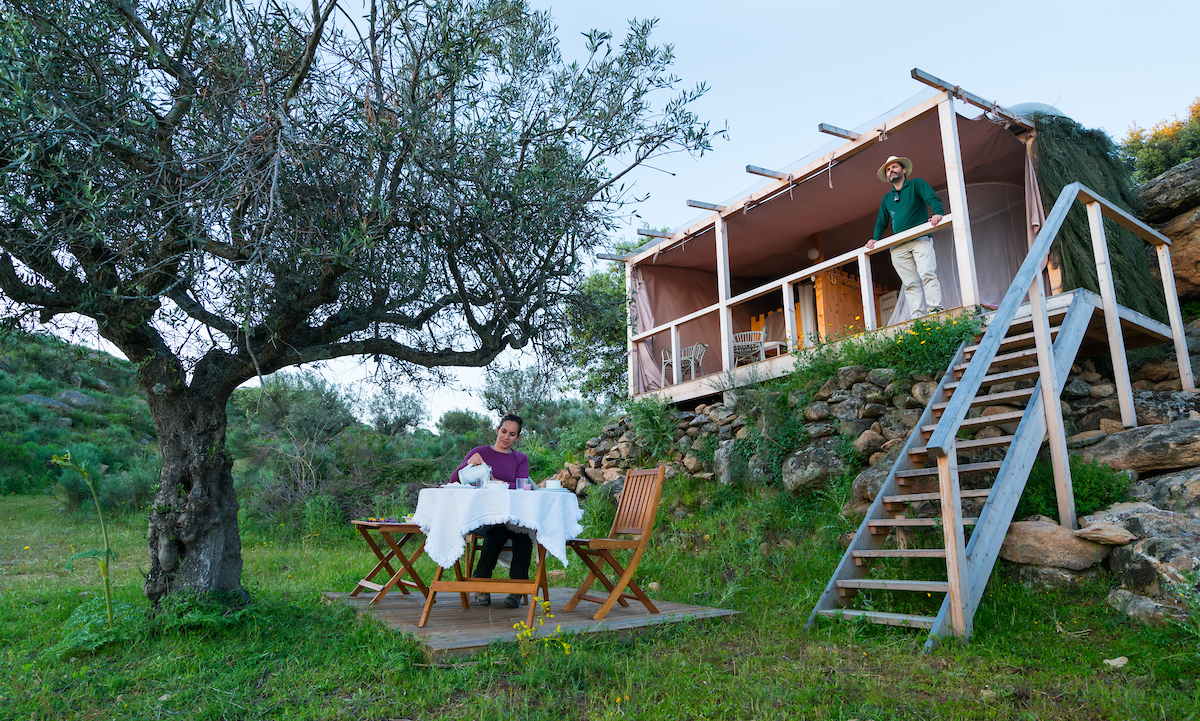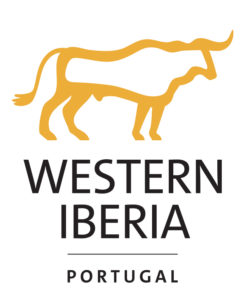The forum, oganised as part of efforts to scale up rewilding in northern Portugal’s Greater Côa Valley, was the first step in developing a network of local, rewilding-related businesses.

Network building
Funded by a grant from the Endangered Landscapes Programme (ELP), rewilding efforts are currently scaling up in the Greater Côa Valley in northern Portugal. Rewilding Europe is working with local partners to shape the valley through the development of a 120,000-hectare wildlife corridor, restoring natural processes and trophic chains, encouraging wildlife comeback, and driving the development of nature-based tourism.
As part of these efforts, a forum was held in Guarda, a city located in the Greater Côa Valley, in late September. Co-organised by Rewilding Europe and Rewilding Portugal, it was attended by more than 10 local enterprises and associations. The aim of the event was foster the development of a strong, well-supported network of nature-based businesses involved with landscape regeneration and the provision of benefits to local communities.
The forum began with an introduction to Rewilding Europe’s current work, both strategically and at the enterprise level, presented by Helena Newell, Rewilding Europe’s Enterprise Manager, and Timon Rutten, Rewilding Europe’s Head of Enterprise. Pedro Prata (team leader Rewilding Portugal) and Marta Cálix (project manager Rewilding Portugal) then presented local rewilding efforts in the Greater Côa Valley.
To open the discussion on the subject of nature-based business, two business cases were then presented by local entrepreneurs. Rob Symington of Symington Family Estates – a company which manages much of the Porto wine production in the Douro area – gave a presentation about the sustainability goals of the Symington Family Estates company. This was followed by a talk from Luís Unas, Managing Director of Floresta Atlântica, an investment fund specialising in sustainable forest development.
Unas advises Sociedade Agro-Florestal do Rio Maçãs, a Portuguese forestry enterprise focused on securing communal (largely monoculture) forests and transforming them into more natural forest and woodland habitat. This business received a loan from Rewilding Europe Capital, Rewilding Europe’s enterprise loan facility, at the end of 2018. It is now using the money to lease 3,893 hectares of communal forest in northern Portugal, with the aim of enhancing wild nature and boosting the value of the forest in terms of nature-based services.
The presentations were followed by an interactive session, with stakeholders from various sectors expressing interest and asking questions. The event concluded with a round of meetings, featuring more debate and an exchange of impressions and contacts.
Progressive programme
The Endangered Landscapes Programme was recently established thanks to a $30 million investment from Arcadia, the UK-based charitable fund of philanthropists Lisbet Rausing and Peter Baldwin. Supporting charities and scholarly institutions that preserve cultural heritage and the environment, it has awarded more than $500 million to projects around the world since 2002.
The ELP is managed by the Cambridge Conservation Initiative, a unique collaboration between the University of Cambridge and leading internationally-focused biodiversity conservation organisations clustered in and around the city of Cambridge. In line with Rewilding Europe’s own objectives, the ELP envisions a future in which Europe’s landscapes are enriched with biodiversity, establishing resilient, more self-sustaining ecosystems that benefit both nature and people.
With rewilding efforts currently scaling up in Western Iberia, work is now well underway to develop a network of nature-based businesses in and around the Greater Côa Valley. To this end, Rewilding Europe Capital has also just facilitated a 600,000-euro loan to the social enterprise Vale das Lobas, which is in the process of developing a nature and health sanctuary in the area.
